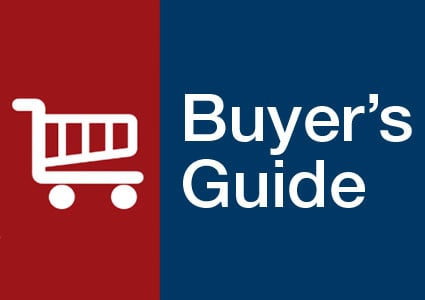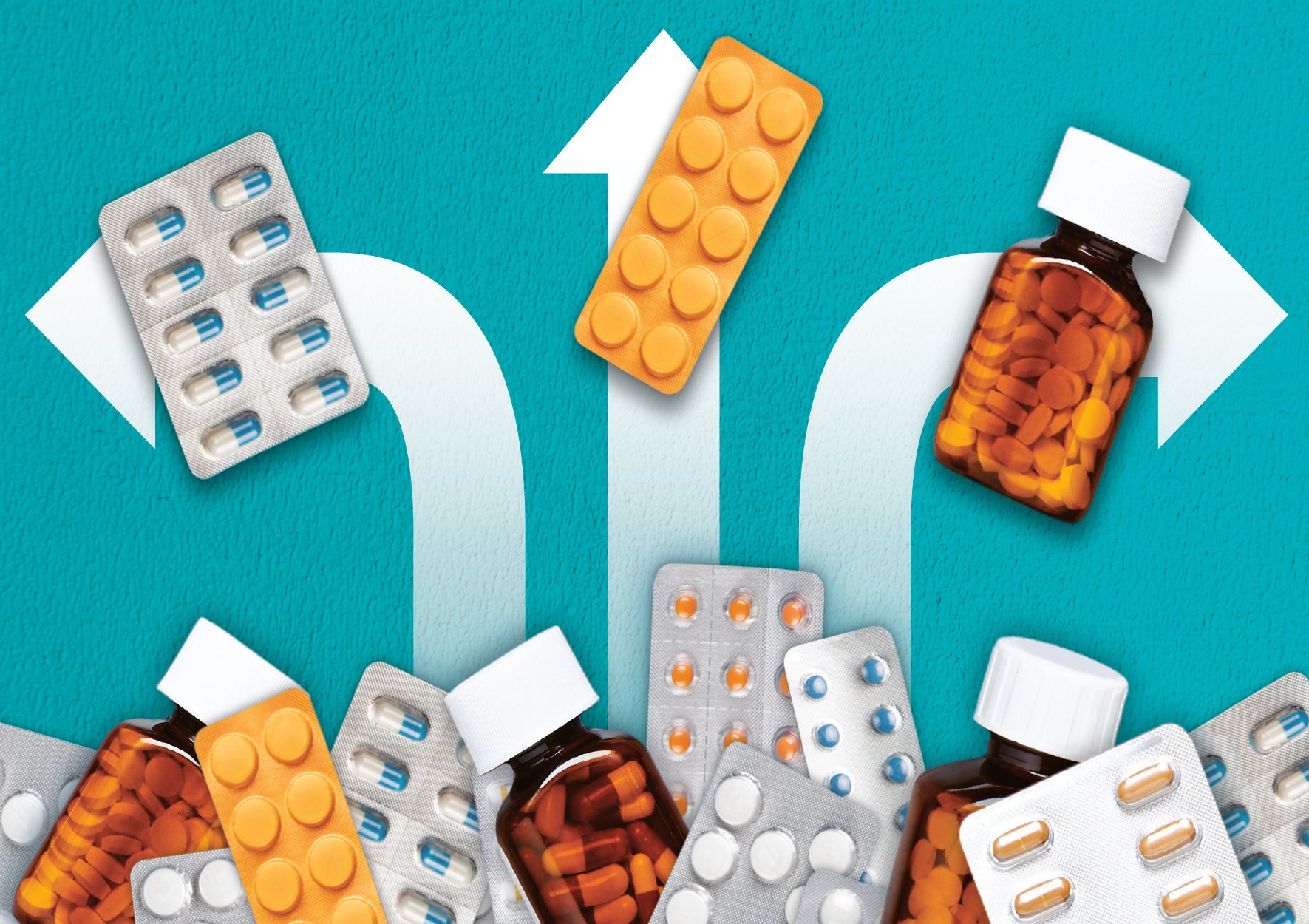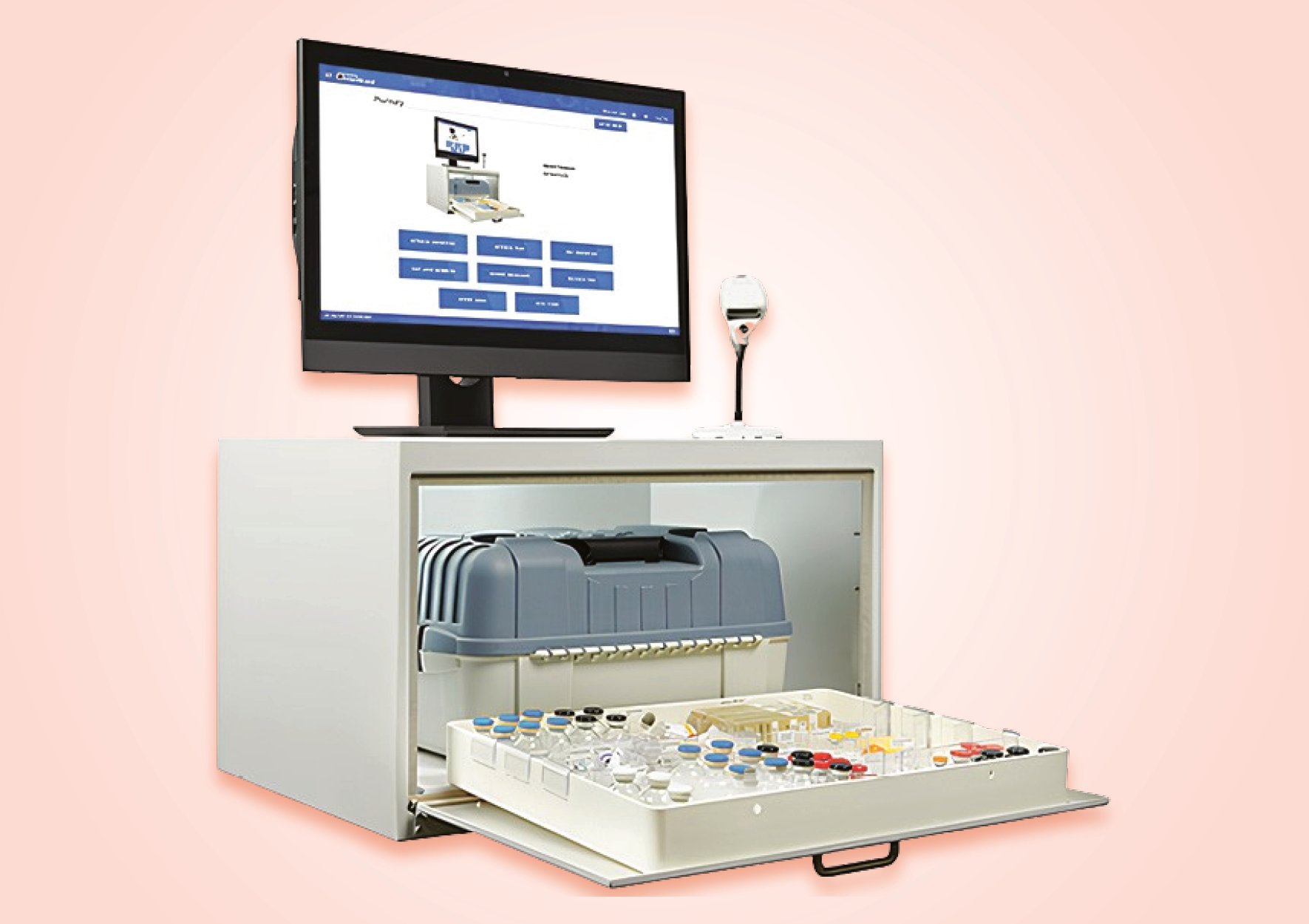- Show Menu
- Contact Us
- FAQs
- Reader Service
- Survey Data
- Survey Winners
- Testimonials
- Upcoming Events
- Webinars
- White Papers
Q&A with Captain Charles G Boenig, PharmD
CAPTAIN CHARLES G. BOENIG, PHARMD, A SOLDIER WITH THE U.S. Army Reserve, served in Afghanistan as the pharmacy officer with a combat support hospital from December 2002 to June 2003, as well as in the Dominican Republic during November 2004.
PP&P: What is your role in the U.S. Army Reserve?
Boenig: Currently, I am a company commander and have moved out of my pharmacy role. My unit is the 48 combat support hospital, known as the 48 CSH — think MASH. When I was deployed in Afghanistan, I was a pharmacy officer — the officer in charge — with the 48 CSH, at the Bagram Air Base in Bagram, Afghanistan. As a combat support hospital, we were responsible for the health and welfare of 10,000 U.S. coalition soldiers, as well as any civilians who were at risk of loss of life, limb, or eyesight. Hence, the civilians we saw were very seriously wounded.
PP&P: How does a combat support hospital unit operate?
Boenig: We train to deploy, so we can pack our gear and take it anywhere in the world and, within eight to 12 hours, have the ability to treat casualties. Within three days, we are required to have a fully functioning hospital. We provide the highest level of care closest to the battlefield. Of course, the way it is now, we are frequently in the battlefield, due to the absence of a front line. We provide inpatient care, such as emergency services, surgery, lab, x-ray, and pharmacy, and outpatient care, including outpatient pharmacy, sick call, dental, and optical services. During my deployment, our holding capacity was 28 beds, expandable to 42 beds for emergencies. It’s pretty sophisticated medicine for being so close to the battlefield.
PP&P: How did you prepare for your deployment to Afghanistan?
Boenig: I talked to my counterpart in Afghanistan, who, with his unit, actually built the hospital. When I say “hospital,” it is not what you immediately think of; rather, it is made of tentage and hard-side structures called ISO shelters. I had to determine what pharmacy equipment I would need to operate in this more challenging environment. At the top of my list was the ability to provide unit dose medications. This environment has the potential to become very dirty, and yet, our goal is to meet the standards that you would meet in a regular hospital stateside. We don’t decrease our standards just because we go somewhere else.
With short notice before my deployment, I approached Bob Braverman [President] of Medi-Dose. Having liked working with Medi-Dose before, I was sure it would meet my unit dosing needs, but I needed help in terms of cost. The cost was coming out of my own pocket, as there wasn’t time to go through the army channels; nonetheless, I knew I was really going to need the ability to package medications in unit dose. Bob was very enthusiastic about helping out; he offered me substantial discounts and provided the software free of charge. I also used the EPS IV software for stand-alone intravenous (IV) admixtures from Medi-Dose. Bob was extremely helpful both before I left and while I was in Afghanistan; via e-mail, I would tell him what pharmacy supplies I needed, and shortly thereafter, they would arrive. In addition, I received care packages full of TastyKakes from Bob and his employees. They were very supportive of our mission.
PP&P: What were the challenges to implementing unit dose packaging in Afghanistan?
Boenig: The ideal situation would have been for the army to package everything in unit dose. However, when flying medications halfway around the world, volume and weight are significant factors and the army has to conserve assets. So I received all of my medications in bulk.
I would have loved the luxury of being able to package every medication in unit dose, but the biggest challenges in Afghanistan were time and labor. We run lean and mean. With two technicians under me — for all 10,000 U.S. coalition soldiers — we worked 12 to 16 hours, six to seven days a week. With those kind of work hours, there simply wasn’t enough time to package everything in unit dose.
To get the most value out of Medi-Dose, we used it to package controlled drugs. Because of the army’s inventory policy, a controlled substance inventory check is conducted every shift. Counting loose pills over and over, amid dust storms, was very labor-intensive for the nurses and could result in unusable medications due to contamination. So Medi-Dose provided accountability, reusability, safety, and sterility.
PP&P: Were the Medi-Dose products easy to work with in this different environment?
Boenig: Medi-Dose worked so well in Afghanistan for the same reasons it works well in stateside hospitals: Medi-Dose is simple and reliable, and it adapts to a variety of situations. Medi-Dose allowed us to conserve resources without the need to haul a lot of equipment.
PP&P: Which of your experiences during your deployment impacted you the most?
Boenig: Boy, that’s a good question. I think the privilege and honor to work with some of the best health care professionals I have ever worked with made the greatest impact. Within two weeks of arrival, we were one well-oiled machine. We really had a tough challenge, often waiting for supplies to come halfway around the world. You can’t call your wholesaler and ask for more supplies to be sent by tomorrow. You have to plan well in advance, and tough decisions have to be made. We often had to switch or conserve therapies in order to make stuff last. I always had buy-in from nursing and the medical staff. It was just wonderful to work with such great people.
Dealing with the amount of wounded that we did also had a great impact on me. We were within spitting distance of everything — not in a basement or an office. When casualties were brought in, we would go to the patients and move from table to table with medications, including pain medications and antibiotics. We were very close with our patients. I spent a lot of time on the wards and, of course, the surgeons depended a lot on my knowledge of drug therapy, particularly when substitutions were necessary to overcome supply challenges.
PP&P: Was it gratifying to be able to help civilians in Afghanistan?
Boenig: Yes, very gratifying and interesting. You have to remember that Afghanistan is one of the most heavily land-mined countries in the world. The country has been occupied several times, and the land mines are everywhere. We had land mines on the compound where we lived; they were just fenced in with barbed wire and marked with a sign reading “Mines.” Civilian victims of land mine explosions came in on a daily basis. Keep in mind that these were the few that actually survived the land mine explosions. The closest hospital was in Kabul — over 30 miles away. People without transportation weren’t going to make it to Kabul. Other civilian injuries included various gunshot and grenade wounds. And we also treated the local population who lacked access to health care for serious illnesses that would put someone at risk of loss of life, limb, or eyesight.
PP&P: What impact did your treatment have on these patients?
Boenig: While it was gratifying for us, it was also a great shock for the civilian patients. Here they were with an injury they should have died from, and if we weren’t there they would have died. People don’t generally survive land mine blasts. They would come to the combat support hospital, which was a completely foreign environment to them. Not only were we strangers speaking a language foreign to them, but they also had never seen a hospital before. So it was a great culture shock to them in many ways. In time, we had translators to build their comfort level. We gave the civilians care equal to that of any soldier that came in. We once rebuilt a local man’s face after his jaw was essentially pulverized by a land mine. At the conclusion of the surgery, our surgeon declared that there was more titanium in the patient’s face than in all the aircraft on the base. We flew in human bone for bone grafting. We brought in plates and screws to repair legs and arms. We gave people back their lives, and the people we treated were very appreciative of us. We went to extreme measures to save limbs and lives. This is a country where manual labor is basic to survival. So saving one limb can mean the difference between life and death for that patient.
PP&P: How did your pharmacy practice in Afghanistan differ from your practice stateside?
Boenig: Pharmacy in Afghanistan is pharmacy like you have never seen before. For starters, we are responsible for having a loaded weapon with us at all times, including when we’re at the shower and the latrine. If you keep in mind the way the military has been transitioning, you are a commissioned officer because of your medical skills, but you are also a soldier. You may need to defend yourself and your patients. So we all use our weapons; we train on putting down a field of fire, and we train on survivability, such as surviving a convoy if things go wrong. When I would convoy up to Kabul, I would put on my body armor and Kevlar helmet, two canteens of water, my M16, and 120 rounds of ammunition, before getting in the vehicle. We usually carried local patients in the convoys, because, once they required only minimum care, we could take them to the Kabul hospital. Our goal was to integrate them back into Afghanistan’s health care system.
PP&P: Is there anything else you think our readers should know about the U.S. Army Reserve in general?
Captain Boenig: People generally think of the military medical staff as being on active duty. In reality, about 70% of the medical assets in the army are reservists. So, at a time of war, such as now, we need to draw upon the reserve. Those of us in the medical reserves train not just as pharmacists, doctors, or nurses and other health care personnel, but also as soldiers. We have a responsibility to protect our patients and ourselves. Protecting patients can be as simple as putting them on the floor and ensuring that their care does not lapse during an attack. You also have to be able to protect the hospital and your own people if necessary. The days when medical personnel didn’t need to carry weapons are long gone or, quite possibly, they never existed outside of the movies.
PP&P: Thank you for sharing your experience with us and — most importantly — thank you for your service to our country.
Like what you've read? Please log in or create a free account to enjoy more of what www.pppmag.com has to offer.








